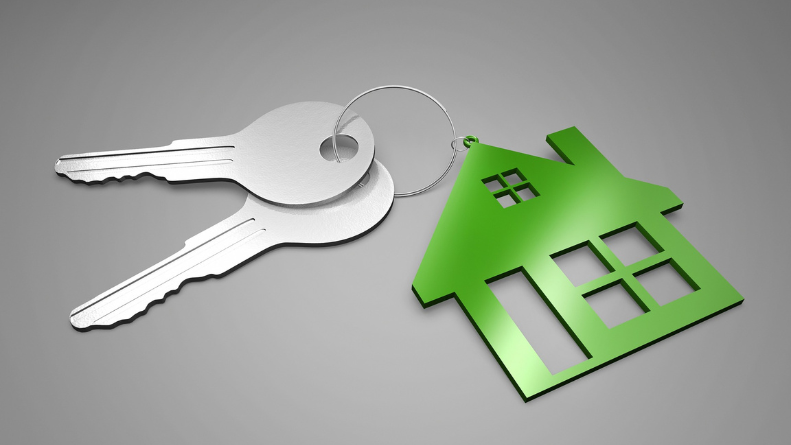Mastering Your Home Selling Timeline
Selling a home or property is a major decision for most people, and with that decision comes a wave of questions—none more pressing than, “How long will it take to sell my home?” In the UK, setting a realistic timeline for selling property involves a careful blend of market analysis, preparation, and strategic timing. Many sellers hope for a quick sale, but the truth is that the process can take months from the moment you decide to sell until you receive the final payment. Understanding the factors that influence this timeline is crucial to managing expectations and ensuring a smoother selling experience.
This guide walks you through the most important aspects to consider when setting a realistic timeline to sell your property in the UK. We’ll explore the key factors that affect how long the sale might take, how to prepare your property to increase your chances of a swift transaction, and how the timeline breaks down from the moment you list your home until completion.
Understanding the UK Property Market
The UK property market can be highly volatile and is affected by various factors, both macro and microeconomic. As you begin thinking about selling, the first step is to understand where the market stands at the moment you plan to sell.
Property demand and supply play a significant role in how quickly homes are bought and sold. If you’re trying to sell in a slow market, where there are more homes for sale than buyers, your property might take longer to sell. Conversely, in a hot market with lots of eager buyers, sales can be much quicker. For example, property portals and agents report that homes in desirable areas of London often sell within weeks, while rural or less popular areas may see homes sitting on the market for months .
Seasonal Timing
One often overlooked aspect of the UK property market is the impact of the seasons. The spring and early summer months (March to June) are typically the busiest times for home sales, with the autumn months (September to November) coming in a close second. Winter months, especially from mid-December to early February, tend to see slower activity due to holidays and weather conditions, meaning homes can sit on the market longer.
To improve your chances of a quicker sale, it’s important to choose your listing time strategically. If you’re targeting a spring or autumn sale, try to prepare well in advance to capitalise on the heightened buyer interest during these periods.

Key Factors Affecting Your Selling Timeline
Several elements can affect how long your property takes to sell. While some factors are out of your control, others can be influenced through preparation and informed decision-making.
Property Condition
The condition of your property is perhaps the most significant factor you can control. Homes that are move-in ready or have been recently refurbished are more attractive to buyers and often sell faster. If your property needs repairs, the sale could be delayed as buyers might see it as a ‘project’ home requiring additional investment.
According to research, homes that are staged and well-presented, with no obvious signs of damage, sell faster and for higher prices than properties that are in poor condition . So, if you’re hoping for a swift sale, it may be worth investing time and resources into improving the condition of your property before listing it.
Pricing Strategy
Another key factor is the price at which you list your home. Pricing your home too high can lead to months of stagnation with little interest from buyers. On the other hand, pricing it too low could lead to a quick sale, but you may lose out on potential profits. It’s essential to strike a balance by conducting a comparative market analysis or hiring a professional estate agent to advise on the best price for your area and the current market conditions.
“Don’t be swayed by the allure of a higher asking price without considering whether the market can support it,” advises Jamie Johnson. “Overpricing is a common reason why homes sit unsold, leading sellers to eventually reduce the price and waste valuable time.”
Buyer Interest and Competition
Buyer interest in your particular type of property is a variable that can change from week to week. If there are similar homes for sale in your area, your property could take longer to sell. Alternatively, if your home is unique or offers a feature that’s in high demand—such as proximity to good schools or transport links—it could attract more interest.
You can increase interest by working with a good estate agent who has a track record of selling properties quickly in your local market. They can ensure your home is seen by the right buyers and marketed effectively across different platforms.

Preparation: The Secret to Efficiency
One of the most important steps in setting a realistic selling timeline is proper preparation. There’s a lot more involved in selling a property than simply putting a sign in the window.
- Organise Your Paperwork
Before listing your property, make sure all your documentation is in order. This includes gathering property deeds, energy performance certificates (EPCs), and any warranties for work done on the property. If there are outstanding legal issues, such as unresolved boundary disputes or building violations, you should resolve these before listing your home.
- Declutter and Depersonalise
When potential buyers come to view your property, they want to be able to imagine themselves living there. Decluttering and depersonalising your home will help them do this. Store away personal photos, excessive decorations, and any furniture that makes the space feel smaller than it is.
A well-presented home not only attracts more buyers but can also lead to quicker offers. Staging your home by adding neutral touches, like fresh paint or simple décor, can make it more appealing .
- Professional Photos and Marketing
Once your home is ready, ensure that it’s marketed effectively. Most buyers begin their search online, so high-quality, professional photos can make a significant difference in attracting viewings. Ensure your estate agent has access to the best platforms and is actively promoting your property on sites like Rightmove, Zoopla, and PrimeLocation.
The Timeline from Listing to Completion
So, how long does it take to sell a home in the UK? On average, it can take anywhere from 3 to 6 months to sell a property, depending on the factors mentioned earlier. Let’s break it down further into the key stages:
- Valuation and Listing (1-2 weeks)
The first step is getting your property valued by a professional estate agent. This typically takes a few days, and once you agree on a price, you can list your property for sale. Getting professional photos and preparing your marketing materials can take another week.
- Viewings and Offers (1-3 months)
Once your home is listed, the process of arranging viewings begins. If your home is priced correctly and in good condition, you might receive offers within a few weeks. However, this stage can sometimes drag on for months, particularly if you’re in a slow market or have competition.
- Accepting an Offer (1-2 weeks)
After receiving an acceptable offer, the next step is to formally accept it. Once this happens, your property will be marked as “under offer” or “sold subject to contract.” During this stage, a solicitor or conveyancer will be appointed to manage the legal aspects of the sale.
- Conveyancing and Surveys (8-12 weeks)
This is the longest stage of the process. The buyer’s solicitor will conduct a thorough search to ensure that there are no legal issues with the property. They may also request surveys and valuations, which can take several weeks to arrange and complete .
- Exchange of Contracts (1-2 weeks)
Once all the legal checks have been completed and both sides are satisfied, you’ll exchange contracts. This is the point at which the sale becomes legally binding. Typically, this happens a couple of weeks before the completion date, although in some cases it can be on the same day.
- Completion (1-2 weeks)
On the completion date, the sale is finalised, and you hand over the keys to the buyer. This usually occurs within one to two weeks after the contracts are exchanged. Congratulations, you’ve sold your property!
Patience, Timing, and Preparation Pay Off
Selling your property is a major life event that requires careful planning and patience. While the process can be complex and sometimes frustrating, setting a realistic timeline and understanding the key factors involved can make all the difference. From pricing your property appropriately to preparing it for the market, the more effort you put in at the beginning, the smoother the process will be.
Remember, factors like market conditions, the time of year, and your property’s condition will all influence how long the sale takes. By working with a knowledgeable estate agent and staying patient, you’ll maximise your chances of selling your home within a realistic timeframe, without unnecessary stress.
ARE YOU READY TO START INVESTING?
Subscribe to our mailing list now for exclusive deals, investment guides and the latest information from the property market.







